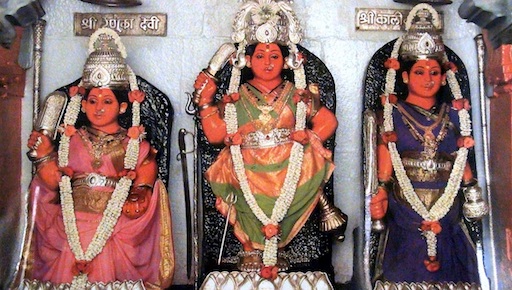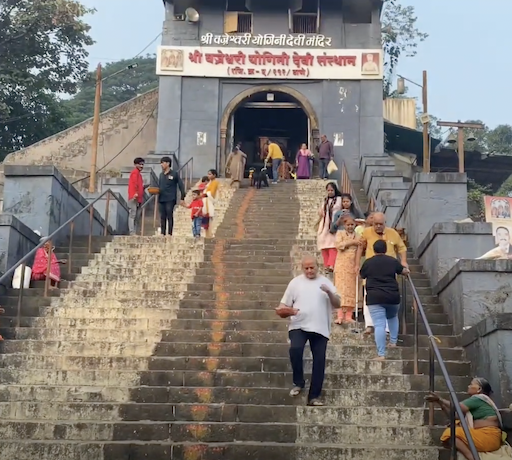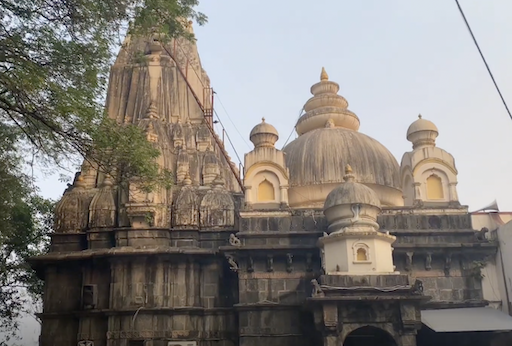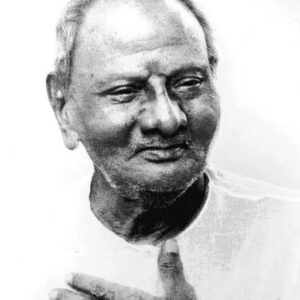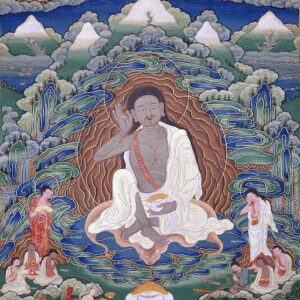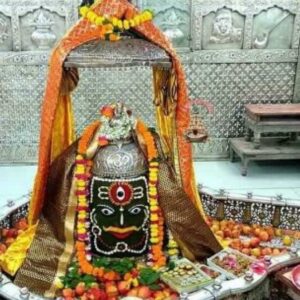This is a consecrated space of Sri Vajreshwari Yogini Devi temple. You can make offerings and go close to the Devi. There is close access to sit and meditate close to the Devi.
How to get there
You can take a cab from Mumbai. You can alternatively take a train up to Virar then you can take local bus to Vajreshwari then an auto to the Samadhi mandir.
Map: https://goo.gl/maps/BFPzJ1EihBbjSwrC9
About Vajreshwari Yogini Temple:
This temple is dedicated to Yogini Vajreshwari Devi, believed to be an incarnation of goddess Parvati (consort of Shiva). The old temple of goddess Vajreshwari Yogini was at a village called Gunj Kati. This was migrated to the present location during the Portuguese period due to the religious intolerance policy of Portuguese.
The present temple is located on a small hillock and accessed by a small flight of steps.
In the military campaign against the Portuguese of Vasai, Chimaji Appa, the younger brother and military commander of Peshwa Bajirao I had camped in the Vadavali region. In his prayers, he expressed his wish to renovate the temple for Vajreshwari goddess if they win this battle. Maratha got control over Vasai, and he renovated the temple of Goddess Vajreshwari
The temple shows the Maratha architecture features. The sanctum houses six idols. The saffron colour idol is of the goddess Vajreshwari. The other images include Renuka (Parshurama’s mother), goddess Saptashrungi Mahalakshmi of Vani and a tiger, goddess Vajreshwari’s mount; are to the left of the goddess Vajreshwari. On her right of the goddess are the idols of the goddess Kalika (the village goddess) and Parshurama. The subsidiary shrine in the temple has idols of Ganesha, Bhairava, Hanumana and local deities like Moraba Devi. The assembly hall has a bell, which devotees ring while entering the shrine. A Yajna Kunda is outside the assembly hall. Temple premises also have few other shrines dedicated to Kapileshwar Mahadeva (Shiva), Datta, Hanumana and saints of the Giri Gosavi sect.
This region has plenty of natural hot springs, these are considered miracles. Pilgrims bathe in it. These hot water springs are locally known as Kundas and named after Hindu gods and goddesses. Several hindu Puranic traditions like Nirmal Mahatmya, Tungareshwar Mahatmya and Vajreshwari Mahatmya have references to Vajreshwari temple. The stories related to this temple also occur in Medieval cultic texts of a Shaiva cult named Natha Sampradaya.
